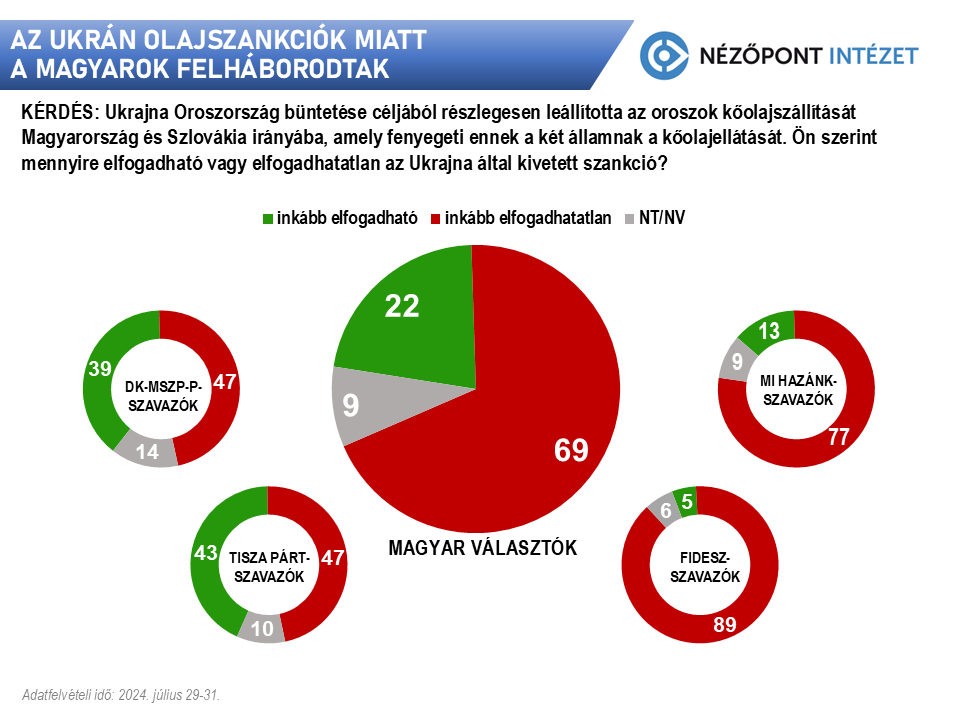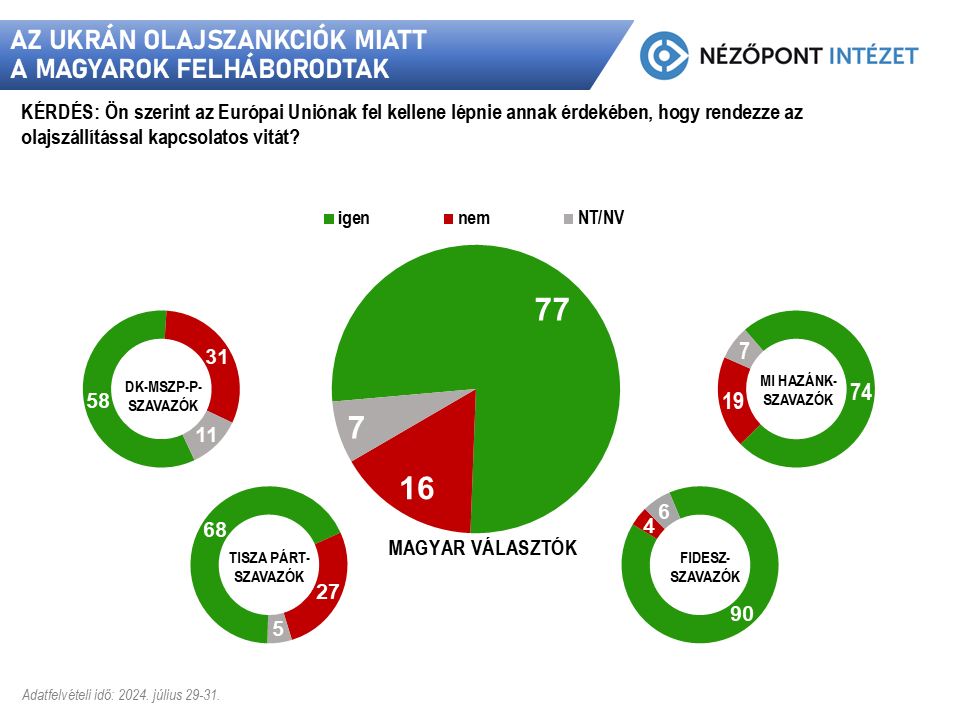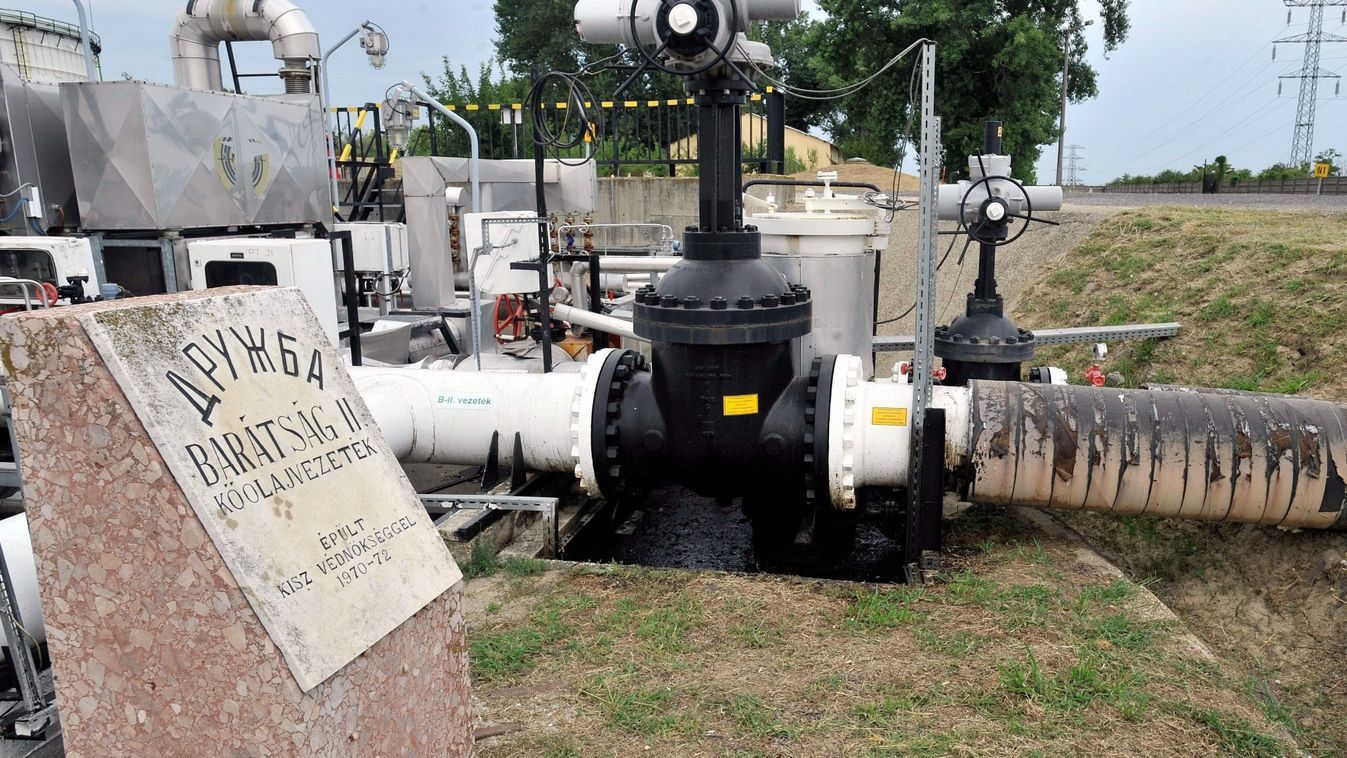69 percent of Hungarians find it outrageous that Ukraine wants to limit oil supplies to Hungary and Slovakia, and 77 percent expect Brussels to mediate between the parties. Last week, the Commission, re-elected with the support of the Hungarian left, announced that it does not intend to help member states.
The Ukrainian-Russian war seems to be escalating in August, since Ukraine, which was attacked by the Russians two and a half years ago, launched an offensive against Russian territory this summer. As part of the intensifying conflict, the leadership in Kyiv announced that it would partially stop the transport of Russian oil through its territory to Hungary and Slovakia.

Although the move does not threaten the fuel supplies of the two EU member states, it is rather surprising given the aid they have provided to Ukraine. It is understandable that, according to a survey conducted by the Nézőpont Institute, 69 percent of Hungarians find the sanctions imposed by Ukraine unacceptable (22 percent consider them acceptable). Even the relative majority of DK and Tisza party voters (47 percent) share this view. However, both parties’ supporters are divided: 39 percent and 43 percent respectively think that the Ukrainian sanctions are acceptable. This clearly shows the ambiguous attitude of the left and its voters towards the issue of sovereignty.
Moreover, Ukraine’s decision to impose oil sanctions is a unilateral violation of a bilateral international agreement, which, however, has not disturbed the rule-of-law-sensitive Brussels elite. As it is well known, the Commission decided last week that since the Ukrainian sanctions do not affect the energy security of the two states, Brussels does not intend to mediate between the parties. This decision by the Commission, which was recently re-elected with the votes of the DK and Tisza party MEPs, not only violates its treaty obligations but also fails to meet the expectations of the Hungarian people. In response to the question of whether the European Union should intervene to settle the dispute over oil supplies, 77 percent of Hungarians answered yes, and only 16 percent no. Even 68 percent of pro-Tisza voters and 58 percent of DK voters shared this opinion.

The possibility that Hungary might respond to the oil sanctions by withholding electricity supplies to Ukraine has also been raised in the Hungarian public debate. However, this response does not yet have overwhelming support: 47 percent of Hungarians would find it acceptable, 42 percent would not. The fuel supply guaranteed by the reserves and the confidence in Hungary’s negotiating efforts probably contribute to the fact that Hungarians are still cautious about their reaction. However, in the absence of an agreement, the mood could easily change, and the already strong opposition to the Ukrainian oil sanctions could lead to similar support for retaliatory measures.
Methodology
The latest opinion-poll of the Nézőpont Institute was conducted between 29 and 31 of July, 2024, by interviewing 1,000 respondents by phone. For all surveys, the sample is representative of the adult population (18 years and older) by gender, age, region, type of settlement and education. In case of a sample size of 1000 respondents and a confidence level of 95 percent, the margin of sampling error is ± 3.16 percent. The data have been rounded to the nearest whole number, so their sum may not add up to exactly 100. Respondent base = Hungarian voters, respondents who are willing to participate in a national election.
